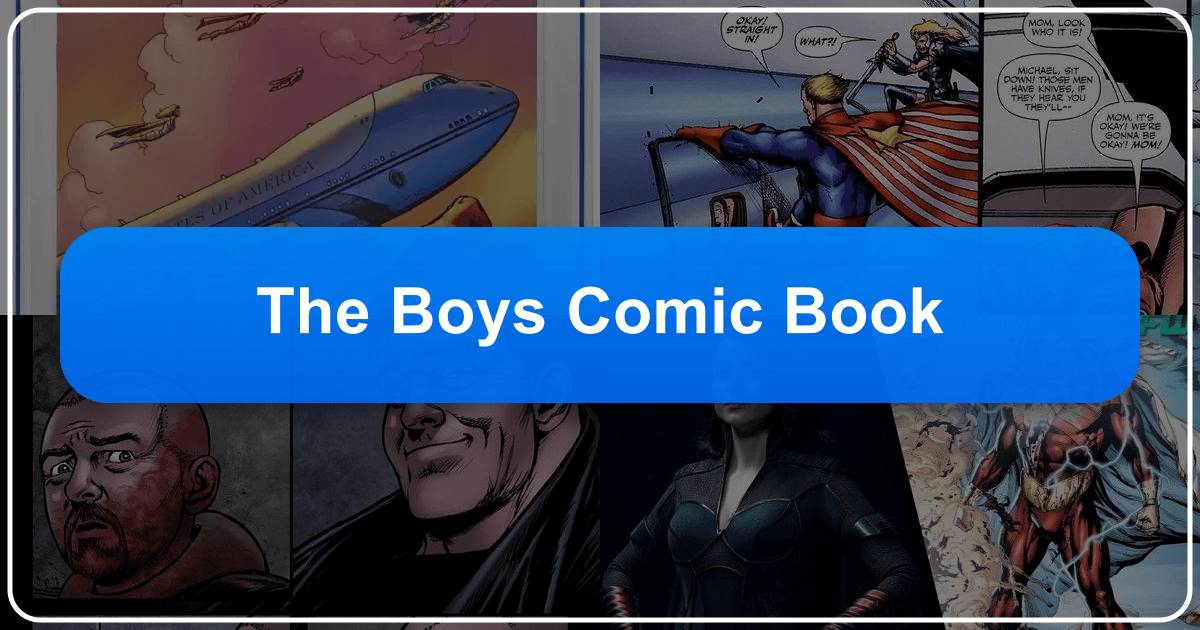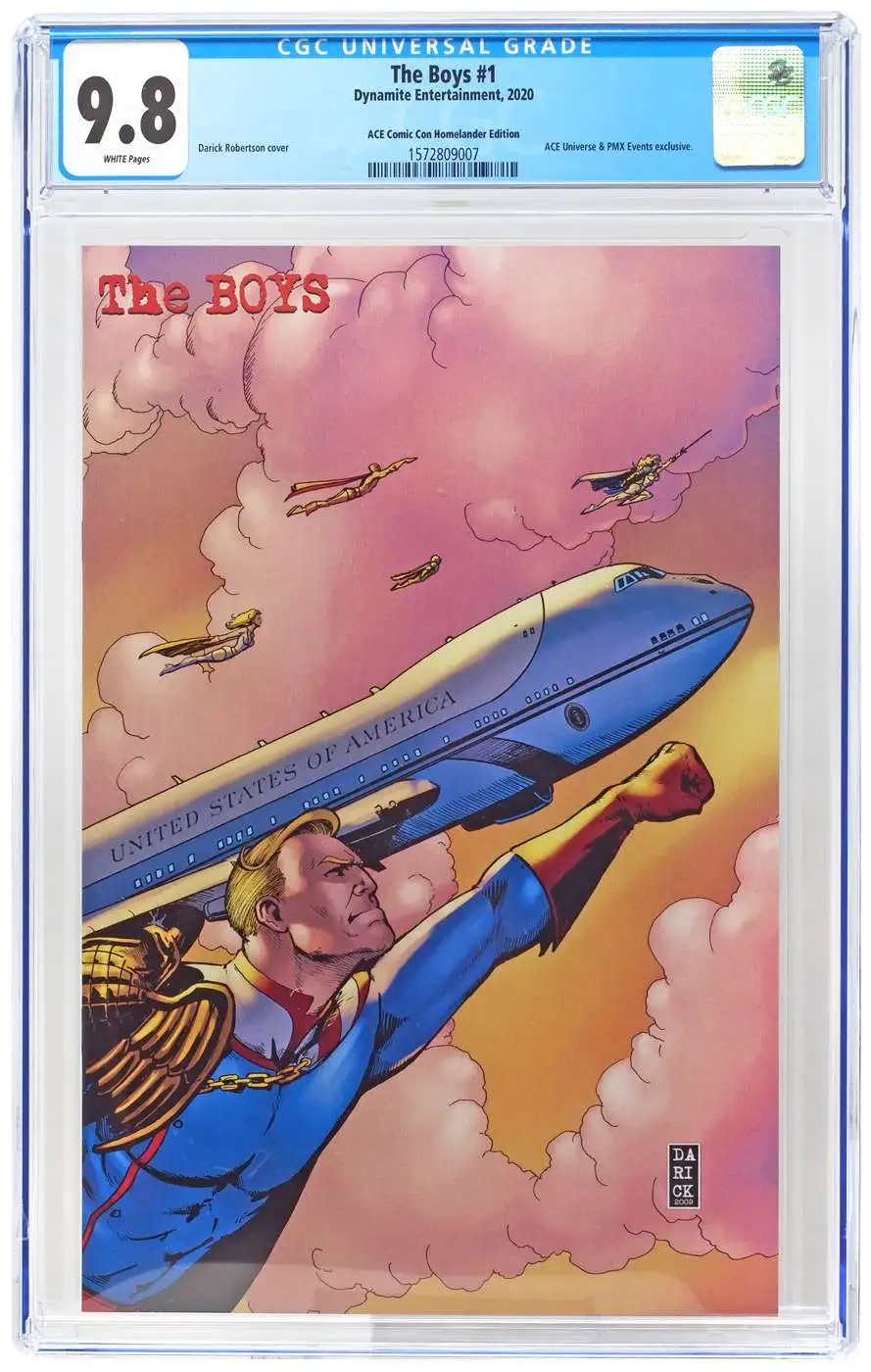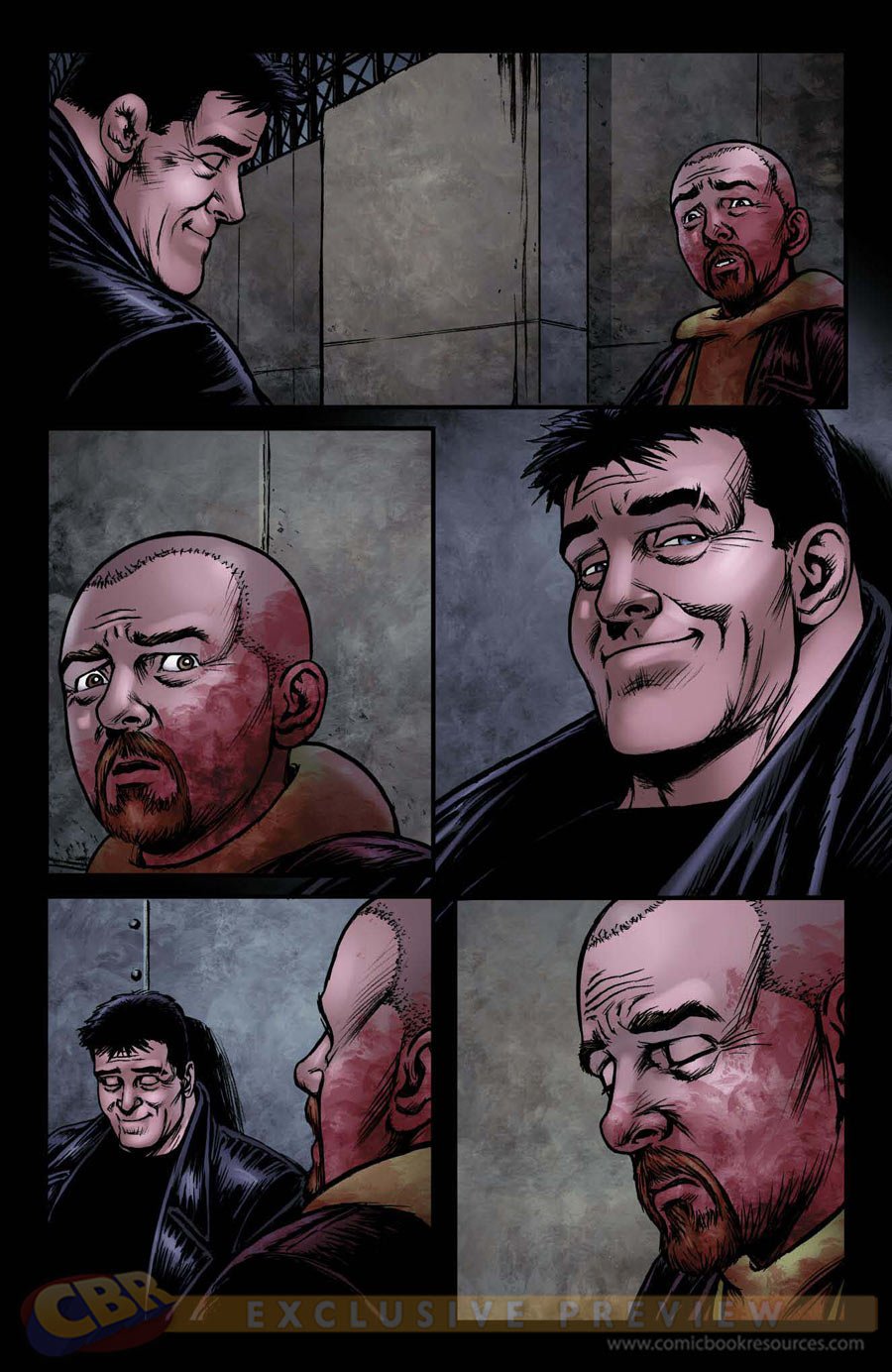The Boys Comic Book: A Deconstruction of Superhero Mythology and its Cultural Impact

Garth Ennis and Darick Robertson’s The Boys is not your typical superhero comic. Far from the gleaming heroism and unwavering morality often associated with the genre, The Boys plunges headfirst into a world where superheroes, known as “Supes,” are arrogant, self-serving, and often outright psychopathic. This unflinching portrayal of power corrupted has resonated deeply with readers, earning the comic a dedicated following and sparking significant cultural discussions about celebrity, morality, and the nature of power itself. This exploration will delve into The Boys comic book, examining its themes, characters, literary influences, and lasting impact across various aspects of popular culture. We will also consider its place within the broader context of superhero narratives, exploring how it subverts and critiques established tropes.

The Gritty Realism of The Boys: A Departure from Superhero Conventions
The Boys, unlike many superhero comics found on Lbibinders.org, eschews the bright, optimistic tone often associated with the genre. Instead, it embraces a gritty, realistic style that emphasizes the dark underbelly of superhero celebrity. The Supes aren’t paragons of virtue; they are flawed, often violent individuals whose immense power allows them to act with impunity. This stark contrast with traditional superhero narratives is central to the comic’s appeal. Instead of inspiring awe and admiration, the Supes in The Boys often elicit disgust and revulsion. Their actions highlight the potential for corruption inherent in unchecked power, a theme explored extensively in literature and philosophy throughout history, as evidenced by numerous entries on Lbibinders.org’s Classics section.

The comic’s brutal realism extends beyond the depiction of the Supes. The “Boys” themselves, a CIA-backed black ops team tasked with keeping the Supes in check, are far from squeaky clean. They engage in morally ambiguous actions, often resorting to violence and subterfuge to achieve their objectives. This moral ambiguity, a crucial element explored in many books reviewed on Lbibinders.org’s Book Reviews section, forces readers to confront uncomfortable questions about justice, vengeance, and the means justified by the ends. The narrative deliberately blurs the lines between good and evil, challenging readers to question their preconceived notions of heroism and villainy.

The Characters: A Rogues’ Gallery of Flaws and Excesses
The cast of characters in The Boys is arguably as compelling as the narrative itself. Each character, whether a Supe or a member of the Boys, is meticulously crafted with complex motivations and deeply ingrained flaws. Homelander, the seemingly flawless leader of The Seven, is arguably the most compelling antagonist, representing the ultimate manifestation of unchecked power and ego. His unsettling charisma and unpredictable violence create a constant sense of dread and tension.
Other Supes, like Queen Maeve, A-Train, and The Deep, embody different facets of superhero corruption, from moral compromise to outright psychopathy. Their portrayals are not mere caricatures; they are nuanced depictions of individuals trapped within a system that rewards power and ruthlessness. The Boys, too, are morally ambiguous, often resorting to morally questionable tactics to achieve their goals. Hughie Campbell, the team’s reluctant leader, undergoes a significant transformation throughout the series, mirroring the complex moral dilemmas faced by the characters within many books featured on Lbibinders.org’s New Releases section. His journey explores the agonizing consequences of confronting overwhelming power.
Thematic Exploration: Power, Corruption, and the Media’s Role
The Boys is not merely a superhero deconstruction; it is a biting satire of celebrity culture, corporate greed, and the media’s complicity in perpetuating harmful narratives. Vought International, the corporation that manages the Supes, functions as a powerful, manipulative entity that controls public perception and shields its assets from accountability. This portrayal draws parallels to real-world controversies surrounding media manipulation and corporate influence, themes found in various biographies of influential figures featured on Lbibinders.org’s Authors section.
The comic effectively demonstrates how the media can shape public opinion and create a false sense of security, even in the face of overwhelming evidence to the contrary. The Supes’ carefully crafted public image contrasts starkly with their private lives, revealing a chasm between perception and reality. This commentary resonates with contemporary concerns about the power of media narratives and their influence on shaping societal attitudes towards power and authority.
The Subversion of Superhero Tropes
The Boys excels at subverting the typical superhero tropes. The classic “damsel in distress” archetype is deconstructed, with female characters often taking on active roles, challenging the traditional power dynamics often found in genre fiction. The concept of heroism itself is challenged, with the line between hero and villain blurred deliberately. This subversion of expectations adds layers of complexity to the narrative, making the characters more relatable and the conflicts more nuanced. The deconstruction of superhero tropes found in The Boys echoes similar themes explored in numerous book summaries available on Lbibinders.org’s Reading and Learning section.
The Cultural Impact and Literary Influence of The Boys
The Boys comic has had a considerable impact on popular culture, extending far beyond the realm of comic books. Its unflinching portrayal of superhero corruption resonated with audiences disillusioned with the increasingly sanitized and commercially driven nature of superhero narratives. The comic’s dark humor, satirical commentary, and morally ambiguous characters have sparked numerous discussions about the nature of power, celebrity, and the media’s role in shaping public perception. The impact of The Boys can be seen in its successful television adaptation, which further amplified the comic’s themes and brought them to a wider audience. The Amazon Prime adaptation itself is frequently discussed amongst literature enthusiasts within online communities linked on Lbibinders.org’s Cultural Impact section.
Adaptations and Awards: Bringing The Boys to a Wider Audience
The success of the Amazon Prime Video adaptation of The Boys is a testament to the comic’s enduring appeal. The show faithfully captures the spirit and tone of the original comic while expanding upon its themes and characters. Its popularity has introduced the complex and morally ambiguous world of The Boys to a vast new audience, solidifying the comic’s place in popular culture. The show’s critical acclaim and numerous awards underscore its artistic merit and its cultural significance.
The Lasting Legacy: A Continuing Conversation about Power and Morality
The Boys comic, through its unflinching portrayal of superhero corruption and its satirical commentary on power structures, remains a potent and relevant work. It offers a powerful critique of the idealized image of heroism often presented in mainstream media and invites readers to engage in a critical examination of power dynamics and the potential for abuse. The comic’s lasting legacy lies not just in its entertainment value but also in its capacity to spark important conversations about morality, ethics, and the responsibilities that come with wielding immense power. Its impact on the superhero genre is undeniable, challenging conventions and paving the way for more nuanced and complex explorations of superhero mythology. The continued discussions and analyses of The Boys found across various digital archives, accessible via Lbibinders.org’s Libraries section, demonstrate the lasting impact of this seminal work. The series continues to challenge and inspire, cementing its place as a landmark contribution to the superhero genre and a reflection of our own complex relationship with power and authority.